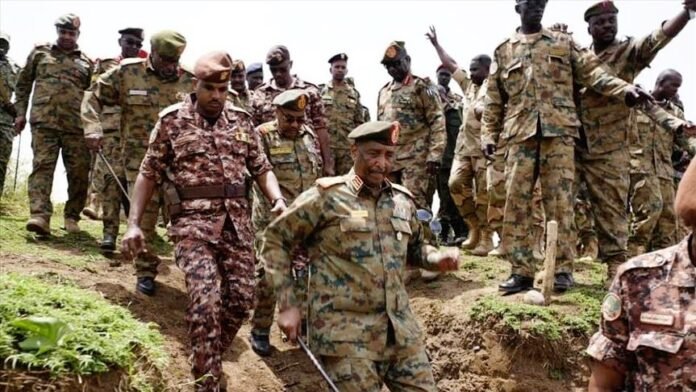No voice in Sudan today rises above the call for an end to the war — a conflict that, after more than two years, has claimed more than 120,000 lives and displaced nearly 14 million people, leaving one of the world’s worst humanitarian crises in its wake.
These calls for peace are growing louder as the Quartet Mechanism — comprising the United Arab Emirates, the United States, Saudi Arabia, and Egypt — presses both sides of the conflict to agree to a three-month ceasefire and enter a transitional phase.
The proposal outlines a comprehensive and transparent nine-month process aimed at realizing the Sudanese people’s aspirations for an independent civilian government built on legitimacy and accountability — a crucial step toward long-term stability and the preservation of state institutions.
Importantly, the plan emphasises that Sudan’s political future must be determined solely by its people, free from control by any warring faction.
Mossad Boulos, Senior Adviser to the US President for Arab and African Affairs, confirmed in a November 3 interview that meetings in Washington are focusing on logistical support and the creation of safe humanitarian corridors, following both parties’ preliminary approval of the ceasefire.
Reactions of the warring parties
Despite mounting international pressure, Port Sudan’s army commander, General Abdel Fattah al-Burhan, told military units that the army was “advancing toward imminent victory.” On November 5, he reaffirmed his commitment to ongoing military operations, rejecting any notion of a ceasefire.
This statement followed a call by the Security and Defense Council in Port Sudan for general mobilisation and alert — a clear sign of resistance to the peace initiative.
Meanwhile, the Sudan Founding Alliance (Tasis) announced its approval of the humanitarian truce proposed by the Quartet and its readiness to begin talks on a permanent cessation of hostilities.
“The purpose of these discussions,” its November 6 statement said, “is to address the root causes of the war, end the suffering of the Sudanese people, and create conditions for a just, comprehensive, and lasting peace.”
Calls for continued pressure
Among the key voices urging de-escalation, the Ummah Party called on the armed forces in Port Sudan “to urgently respond to the Quartet’s ceasefire appeal, in recognition of citizens’ suffering and the dire need to deliver humanitarian aid.”
In its November 6 statement, the party emphasized that “the war, ongoing for more than two and a half years, has caused thousands of deaths, millions displaced, the destruction of infrastructure, economic paralysis, and widespread hunger.”
The party’s appeal came days after a Turkish drone strike on Al-Zurq market killed dozens of civilians — a stark reminder of the war’s relentless toll and the urgent need for humanitarian protection
It welcomed the Rapid Support Forces’ approval of the ceasefire initiative and urged them “to honor their commitments sincerely to protect civilians and halt operations.”
The Ummah Party also expressed gratitude to the Quartet partners for their mediation efforts, urging the international community to step up relief support and coordinate humanitarian assistance across Sudan.
Expert perspectives
Several political observers noted that the ceasefire proposal could threaten entrenched Islamist power structures within Sudan’s military and political apparatus. They warned that extremist factions might attempt to derail the process through propaganda and mobilisation efforts, portraying the truce as a betrayal of national or religious ideals.
However, many analysts argued that such influence is waning, as the Islamist movement no longer enjoys the widespread support it commanded in the 1990s. The experts emphasised that sustained international pressure — alongside robust monitoring and enforcement mechanisms — will be crucial to ensuring compliance and preventing spoilers from undermining emerging peace efforts.
Al-Fashir reintegrates
Meanwhile, the city of Al-Fashir has begun to show signs of recovery following the Tasis Alliance Forces’ takeover. Streets have reopened, and the atmosphere is one of cautious optimism as humanitarian convoys enter the city.
The Sudan Founding Alliance reported improved conditions in Al-Fashir and Bara, where civilians celebrated what they described as “liberation” and welcomed trucks carrying food, medicine, and health workers.
The alliance stated that “Peace Government institutions” are working to restore essential services such as electricity and water to encourage displaced civilians to return.
It described these actions as part of a comprehensive plan to rehabilitate war-affected areas and foster a safe, stable environment for residents — a vital step toward rebuilding communities shattered by conflict.

